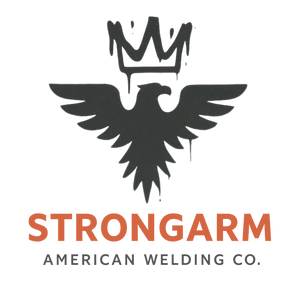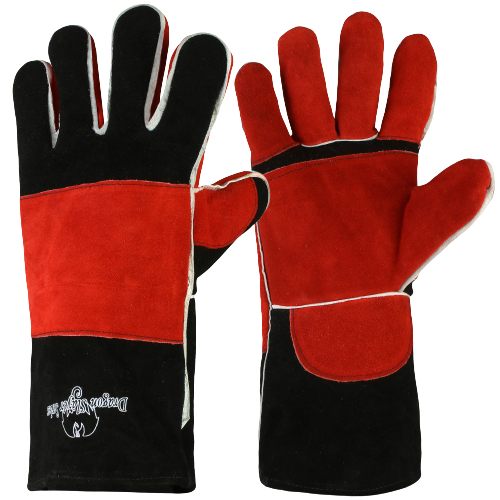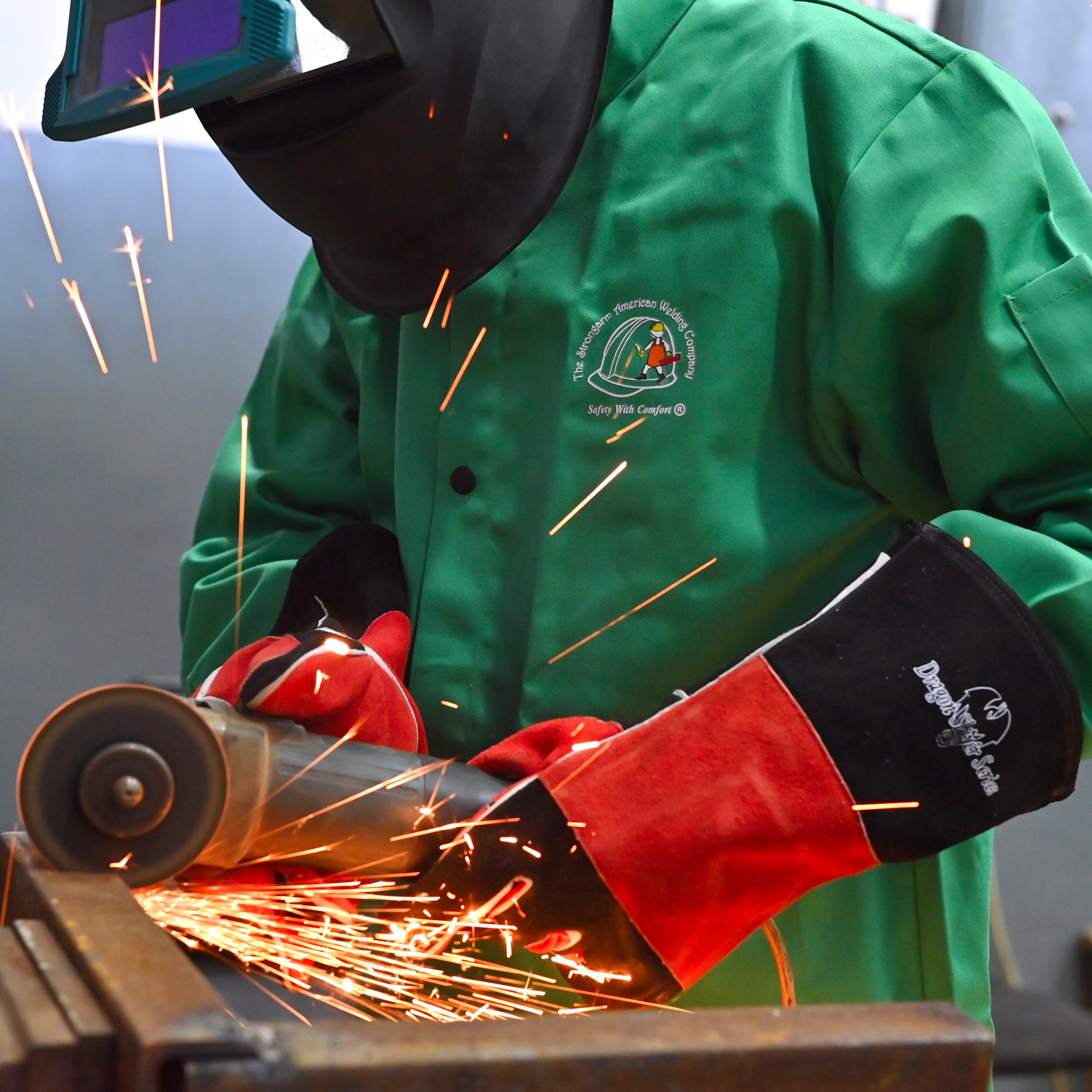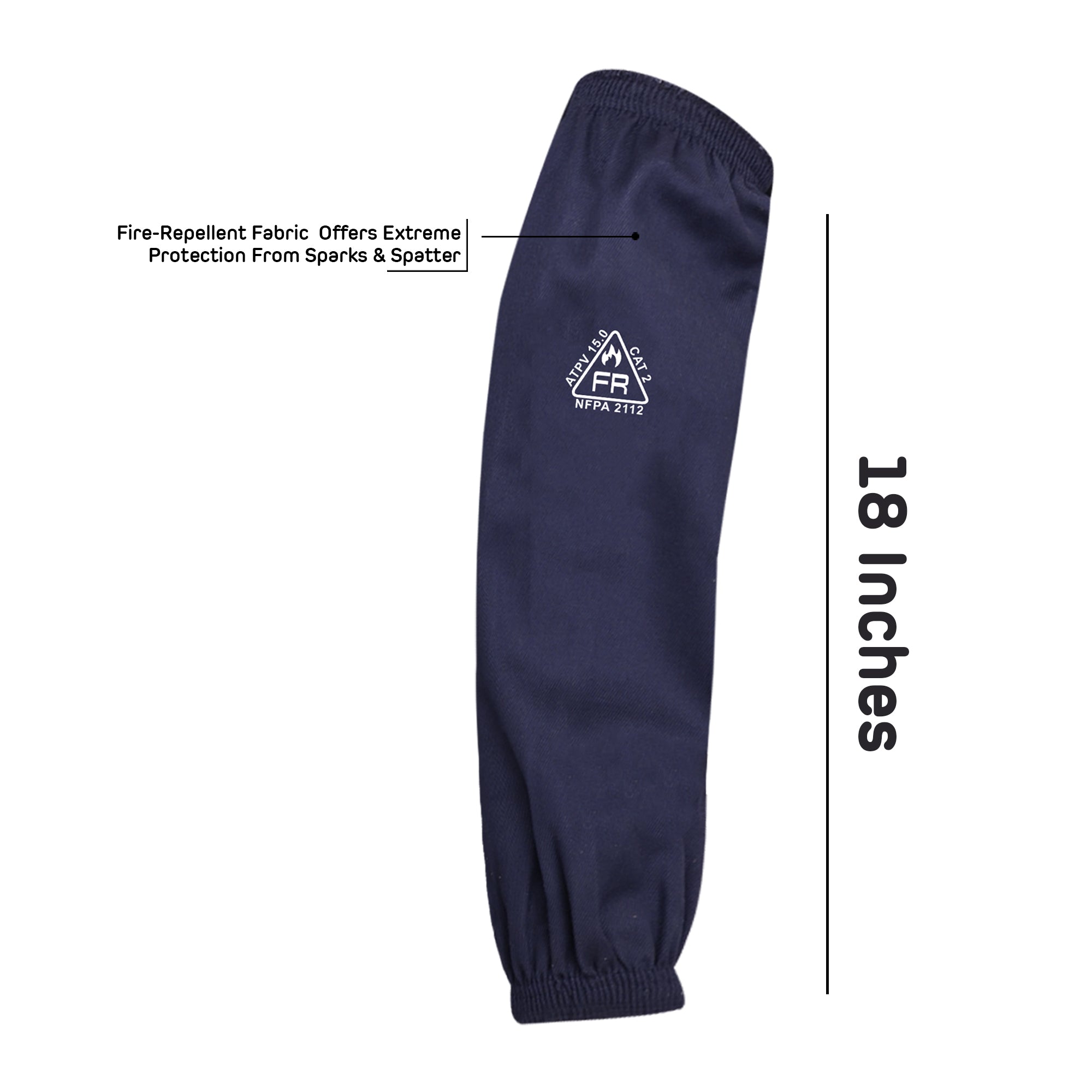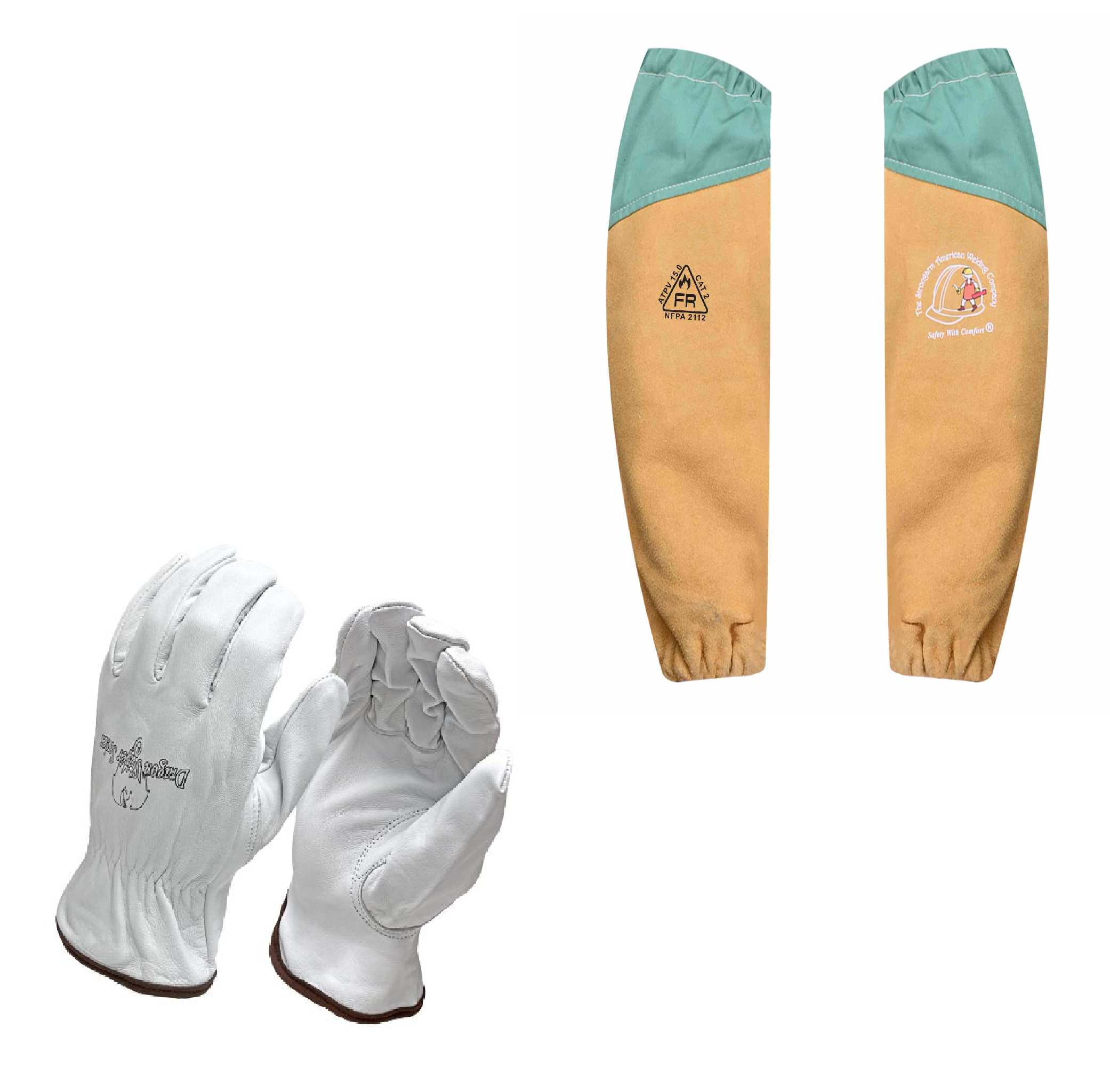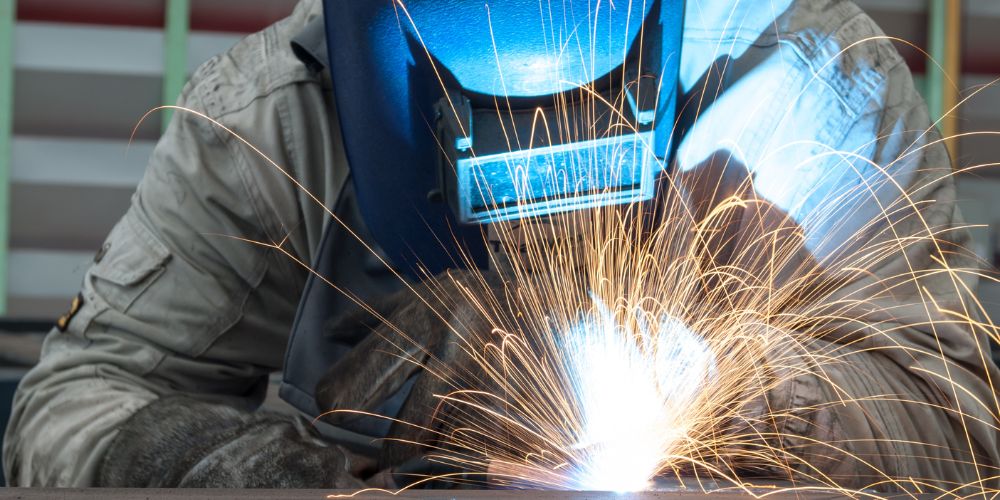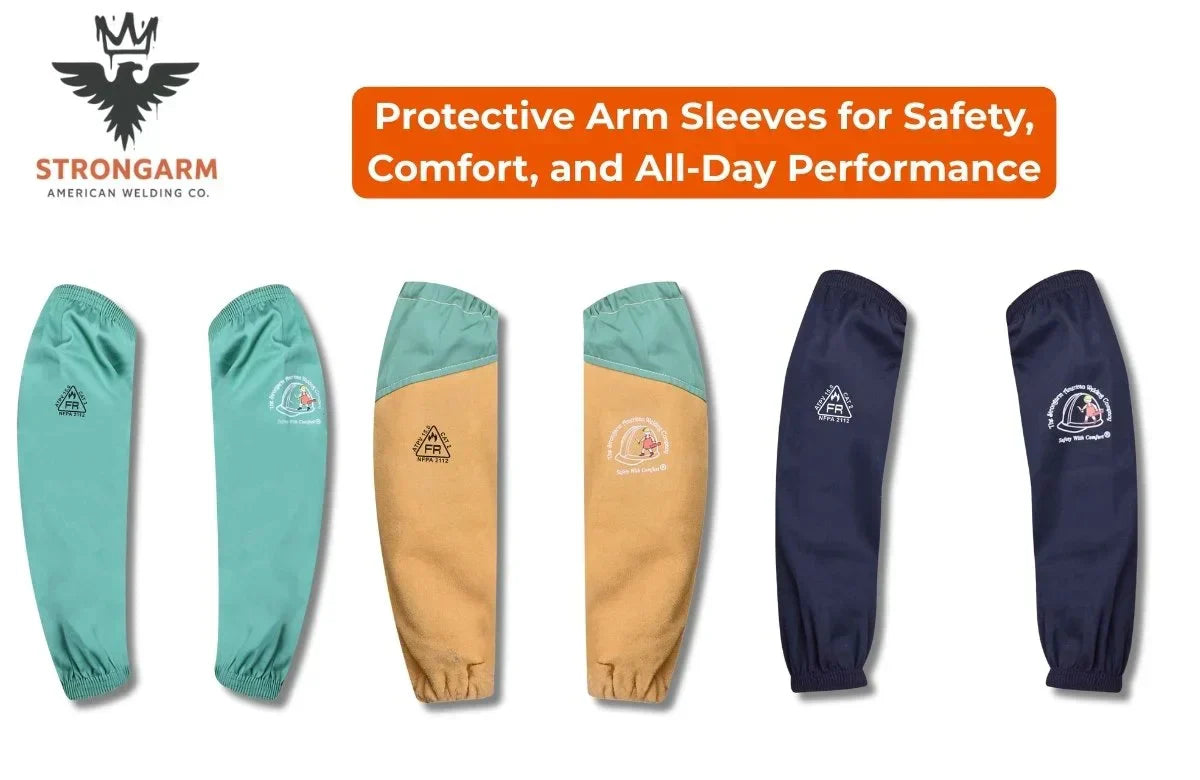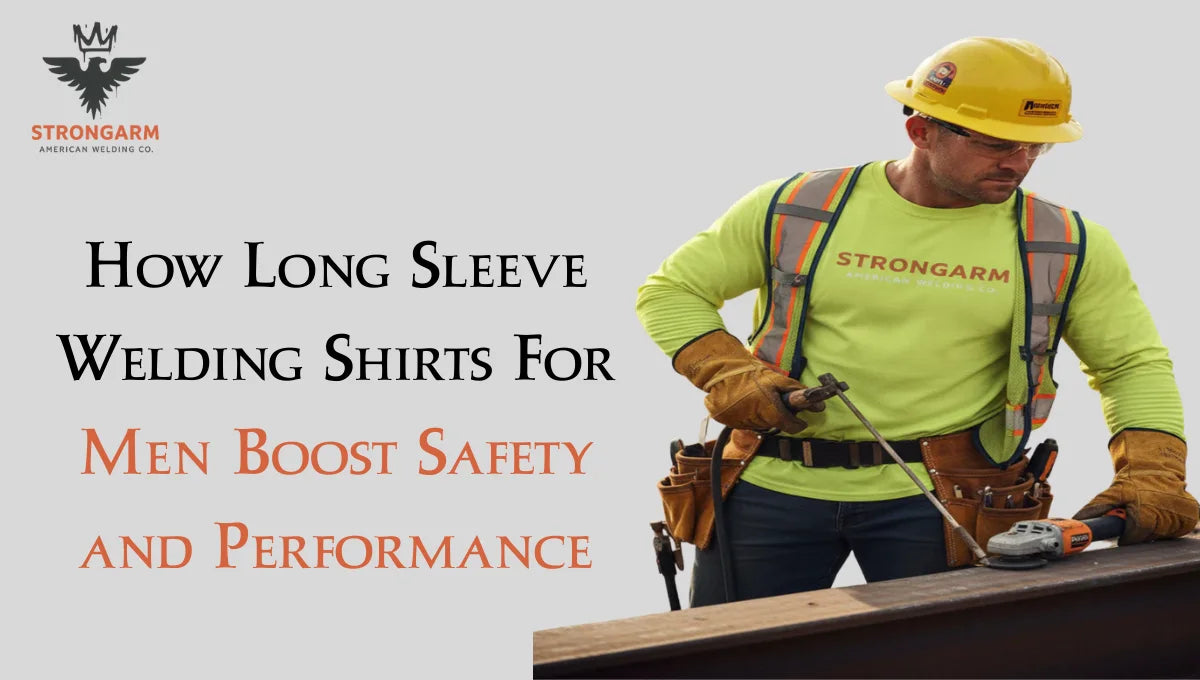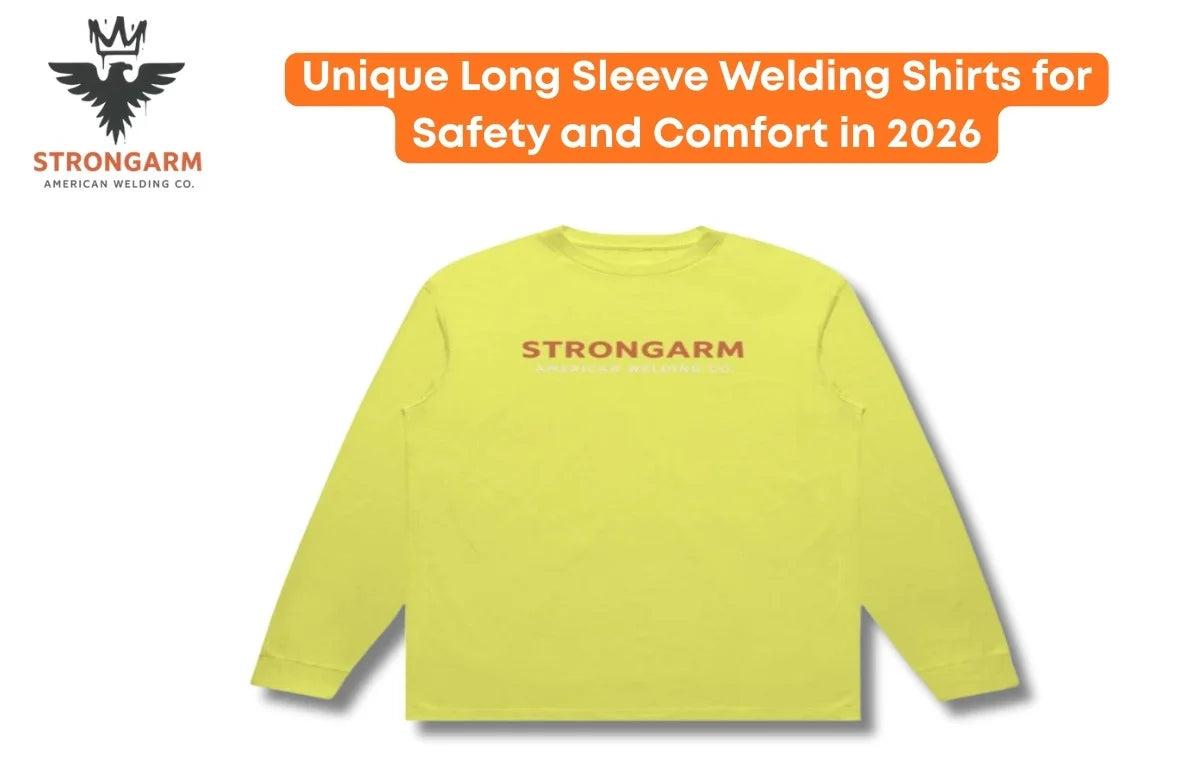Choosing the perfect fit in accordance with welding apron material can be tricky. Some welders prioritise comfort and others safety. To choose the right fit it is important to be aware of what your priority is.
Whether you are looking for a comfortable welding apron or a welding apron for protection, you need to know about your requirements first. When it comes to choosing the right material for your welding apron, you'll want to weigh the pros and cons of each material carefully. This guide will help you figure out the best welding apron material.
Why Use A Welding Apron?
Before selecting the type of welding apron let's discuss the importance of welding aprons. Welding is a skilled work that involves joining metals using high temperatures, electrical arcs, and intense heat. In this process of welding, welders face high temperatures due to the heat produced for joining two metals.
What welding aprons do is, provide protection from sparks, spatter and heat generated in the welding process. Selecting the right welding apron material is the most crucial factor when buying a welding apron.
Leather Welding Aprons
Let’s start our comparison with leather welding aprons. Leather is one of the most durable and protective clothing choices for welders from centuries ago. It is durable and heat resistant, making it an ideal choice for welding apron material.
Pros And Cons Of Leather Welding Aprons
Leather welding aprons have been a go-to choice as a welding apron material for welders. These aprons offer several advantages that make them a preferred option for those in the welding profession. However, some welders also avoid buying leather aprons. Here are some pros and cons of leather welding aprons that will help you guide whether you should buy a leather welding apron or not.
Pros Of Leather Welding Apron
Leather aprons offer several advantages:
- Durability: Leather is tough and can withstand sparks, heat, and abrasions, making it ideal for heavy-duty welding tasks.
- Protection: It provides excellent protection against sparks and small splatters of molten metal, reducing the risk of burns.
- Comfort: Leather is pliable and moulds to your body over time, ensuring a comfortable fit.
- Longevity: With proper care, leather aprons can last for years, making them a cost-effective choice.
- Customizable: You can customise your apron, and add some pockets to carry gears you use frequently during welding.
- Variety: Leather aprons come in various styles and sizes, allowing welders to choose one that suits their specific needs and preferences.
- Resistance to Chemicals: Leather is naturally resistant to many chemicals, which can be beneficial in environments where chemical exposure is a concern.
Cons Of Leather Welding Aprons
However, leather aprons do have some drawbacks:
- Weight: Leather is heavier than other materials, which can be tiring for long welding sessions.
- Maintenance: Leather requires regular cleaning and conditioning to maintain its quality.
- Heat Retention: Leather may trap heat, causing discomfort in hot working environments.
- Absorbency: Leather is made up of oils and chemicals. If not cleaned properly, it can become stained or damaged over time.
- Limited Flexibility: Welders who require a high degree of mobility may find leather aprons somewhat limiting in flexibility.
Flame-Resistant Welding Aprons
To protect welders from potential dangers flame-resistant welding aprons are also widely used by professionals. Welding apron material for flame-resistant welding aprons is preferred by many due to its comfort and safety. Basically, flame-resistant aprons are comfortable and are tailored to provide protection from the sparks, spatter, and heat generated during welding. The most common material used for flame-resistant welding aprons includes heavy-duty cotton, denim, carbon fibre and rubber.
Pros And Cons Of Flame-Resistant Welding Aprons
Flame-resistant welding aprons offer significant advantages in terms of protection and comfort. These aprons are designed to prioritize safety and comfort for welders working in various environments. It's also important to be aware of these limitations and potential drawbacks. Here are some pros and cons associated with flame-resistant welding aprons.
Pros Of Flame-Resistant Welding Aprons
- Safety: The primary goal of any welding apron is to keep the welder safe, and flame-resistant fabric does this exceptionally well.
- Comfort: Lightweight and breathable materials ensure that welders remain comfortable during long hours on the job.
- Ease of Maintenance: Simple cleaning and care routines make these aprons practical for daily use.
- Affordability: Flame-resistant fabric welding aprons are often more budget-friendly than their leather counterparts.
- Versatility: With a variety of styles available, these aprons can be customized to suit the unique requirements of different welding tasks and environments.
Cons Of Flame-Resistant Welding Aprons
- Limited Heat Resistance: In exceptionally intense heat, there is a risk of heat transfer through the apron.
- Chemical Sensitivity: Some flame-resistant materials may be sensitive to certain chemicals. It's essential to check the compatibility of the apron material with the working environment.
- Not Ideal for All Welding Types: Flame-resistant aprons are good for many welding applications, but they may not be the best choice for all types of welding.
- Less Durability Than Leather: In situations with sharp objects or abrasive materials, these aprons may show signs of wear more quickly.
Tips For Choosing the Right Welding Apron Material
Choosing between leather and flame-resistant fabric welding aprons ultimately depends on your specific needs and preferences. Both materials have their own features so finding the perfect piece depends on your needs. Here are some factors to consider when making your decision
Work Environment
Assess the hazards in your workplace. It is crucial to know about your needs. For example, MIG and Stick welding require leather welding aprons. If fire risks are high, flame-resistant fabric is a safer choice. So the environment and needs for welding should be checked before buying a welding apron.
Duration of Use
Now when you are done deciding the environment check for the hours of working. This is also a crucial factor to consider while buying a welding apron. If you are working for a short period of time then leather may be most suitable for this job and will get the job done perfectly. But for longer sessions, consider the comfort of a fabric apron, because leather aprons may not give comfort and flexibility.
Maintenance
Aprons need some care for durability. If you are not willing to take care of your apron then opt for Flame-resistant aprons. These aprons are easy to wash and need less maintenance. On the other hand, leather needs a lot of maintenance as you can’t wash it in a washing machine.
Budget
Leather aprons tend to cost more upfront, but their longevity may offset the initial expense. However, flame-resistant is relatively low in cost and easy to use. Take your time to scrutinize the aprons that are well-suited for your requirements before making the final decision.
Personal Comfort
Prioritizing personal comfort is just as important as safety when choosing the right welding apron. Many welders have preferences based on the material's feel, and for good reason. Comfort is not only conducive to productivity but also to overall safety. Flame-resistant apron materials are renowned for their comfort, making them an excellent choice. If you're seeking a welding apron that balances comfort and protection, consider trying out a denim apron.
Safety And Comfort Matters
Prioritizing safety and comfort in your choice of welding apron materials is paramount, especially in the demanding and hazardous field of welding. Uncomfortable conditions, particularly in high temperatures, can be frustrating and compromise safety. It's crucial to assess the duration of your work. For instance, leather can be an ideal choice if you're engaged in a 30-minute MIG welding task. However, leather may become cumbersome for extended 6-hour workdays involving various welding types. Here's a valuable tip: always keep safety and comfort as your top priorities when selecting welding apron materials.
Conclusion
Remember, the right choice of welding apron material can significantly impact your safety, comfort, and overall efficiency on the job. Consider the nature of your welding tasks, the duration of your work, and any specific safety regulations in your industry. By doing so, you'll not only protect yourself effectively but also ensure a smoother and more productive welding experience. Whether it's leather, flame-resistant material, or any other option, make an informed decision that suits your needs and the demands of your welding profession.
